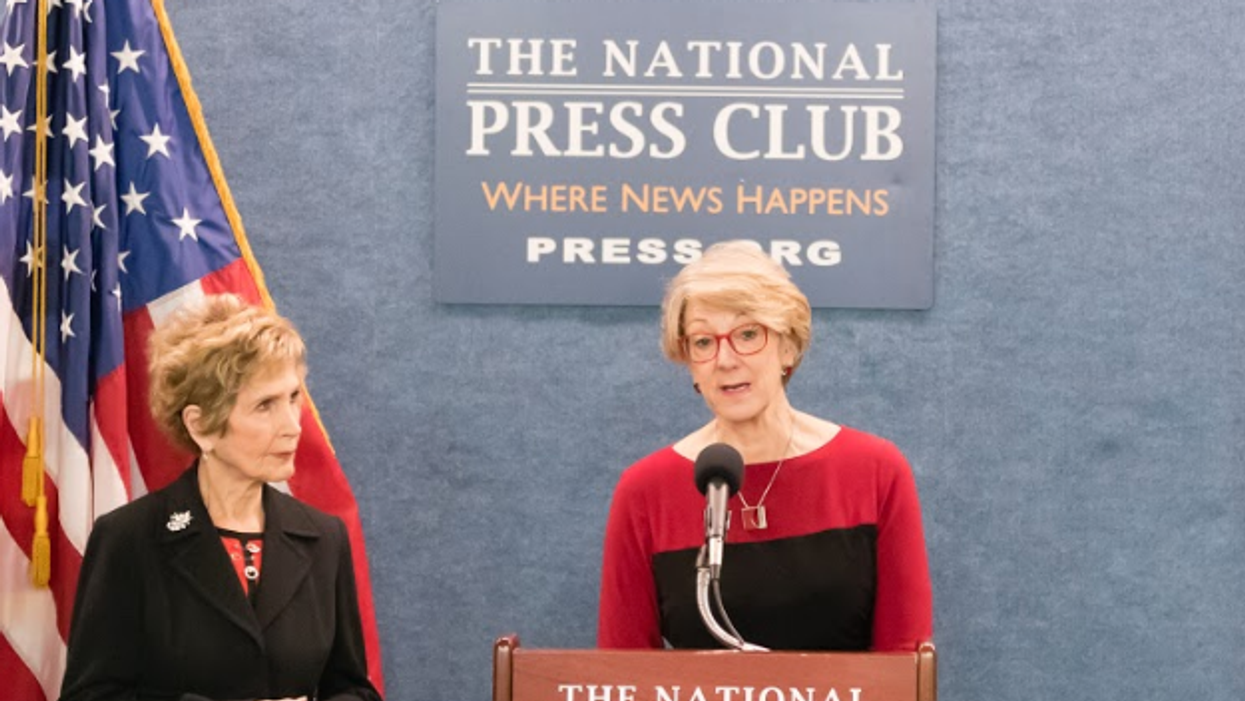This is the fourth installment of an ongoing Q&A series.
As Democrats take power in Washington, if only tenuously, many democracy reform groups see a potential path toward making the American political system work better. In this installment, Meredith McGehee, executive director of Issue One, answers our questions about 2020 accomplishments and plans for the year ahead. Her organization works with Democrats, Republicans and independents to strengthen ethics laws, curb big money in politics and modernize elections, among other reforms. (Issue One owns, but is journalistically independent from, The Fulcrum.) McGehee's responses have been edited for clarity and length.
First, let's briefly recap 2020. What was your biggest triumph last year?
Issue One launched the Count Every Vote campaign that brought together the National Council on Election Integrity, a bipartisan group of political, government and civic leaders united around protecting the integrity of our elections. This campaign included more than $10 million in television, print and digital advertising to help ensure every American's vote was counted and to reassure Americans that the 2020 election was safe, secure, free, fair and transparent — which it was.
And your biggest setback?
Despite our efforts — as part of a push by a wide range of groups — we did not succeed in getting a second round of election funding from Congress for states and localities to administer the 2020 election. (The CARES Act, passed in March, did include $400 million, which Issue One, like many organizations, hoped would be a down payment on more funds to come.) After Congress deadlocked on a second bill that would have provided additional funding for election administration, private philanthropy and businesses stepped up to fill some of the gaps. These contributions prevented a nationwide election meltdown, but this is no way to run a country.
What is one learning experience you took from 2020?
The Jan. 6 riots and President Trump's role in fomenting anger and division remind us all we cannot take our democracy for granted. The people are more divided than ever and don't trust our institutions.
Now let's look ahead. What issues will your organization prioritize in 2021?
We'll be focused on strengthening election integrity and administration, responding to the weaknesses in executive branch ethics revealed over the last four years, combatting the corrosive influence of big money in our elections and increasing congressional capacity.
How will Democratic control of the federal government change the ways you work toward your goals?
Having Democrats control Congress and the White House both sets a different tone and changes who initiates the agenda, but it does not change the fact that any legislation has to go through the Senate. And passing legislation in the Senate will still require some modicum of bipartisan support, which is why Issue One will continue to build relationships with Democratic and Republican lawmakers in both chambers.
What do you think will be your biggest challenge moving forward? And how do you plan to tackle it?
The biggest challenge is imaging a path forward where the public believes its elected officials are working for them. That is why Issue One is advocating for reforms that bring sunlight to who is trying to influence our elections, inform the public about who is trying to sway their votes, prevent officials from enriching themselves and ensure that our elections are safe, secure and transparent.
Finish this sentence. In two years, American democracy will …
be stronger, thanks to the hard work of Democrats, Republicans and independents, who want to repair our broken political system and make it possible for all people in the United States to better participate in our system of government.




















